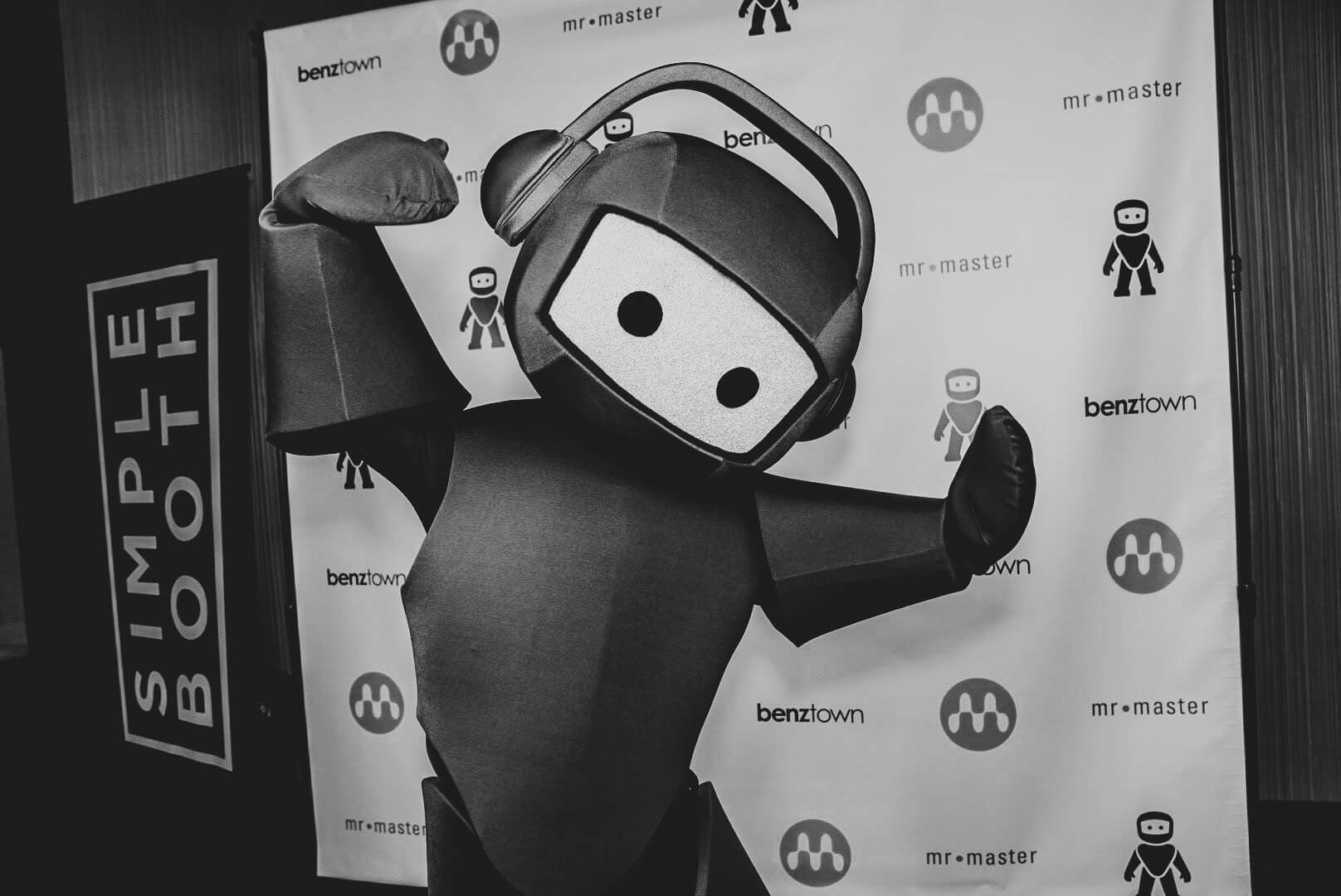The Voices Of The Iron Imager
Voiceover is one of the most crucial elements in radio imaging, and for the first time ever our Iron Imager contestants may borrow one our VO talents from the Benztown Brigade. Let’s meet the team!
1) How does it feel to hear your voice go from copy to completion?
Lucas Nugent: Hearing finished work in any area of VO just has this payoff that is hard to describe. Satisfaction, pride… affirmation? I used to install flooring eons ago and looking at a room afterwards gave me a similar feeling. It also just feels really really cool. To quote the brilliant Marice Tobias: radio imaging is weightlifting on the beach. It’s being the coolest guy in the room. And to hear your lines all dressed up with the punch of great production is just really very cool to hear.
Erin Setch: I love that everyone interprets things differently. One of my favourite things about VO workshops is listening to the choices that other talent make on the same piece of copy. That being said… what producers and engineers can do with a piece of audio can be pretty mind boggling. I love hearing things come together.
John Hunerlach: It’s still like some kind of black magic to me. Producers are definitely a VO guy’s best friend. I really love the way a read can be made to sound so different environmentally.
Margit Furseth: The creativity that goes into the production of radio imaging I equate with the transformation that happens when I get my make-up professionally done. The initial raw product ( copy/voice-over) is brought to life in ways I did not even imagine or think possible. The continual creativity that Imagers are able to bring to their work never ceases to amaze me. Having a imaging professional work with my raw recording is essentially like having the best make-up artist for my voice!
Rob Wreford: As a VO Artist, we usually know which way the producer/writer is going with the script, so we sorta have a good vision of what it will sound like before we start voicing the script. I try and deliver everything they’ll need to put the production together. (Different tones/inflections/etc). There are some producers who have taken my voice and through their expertise in production, have made me sound huge! Sometimes I’m literally blown away!
Anne Vydra: It’s neat-0! It’s the reason I tell people I am NOT a producer. No WAY can I do those amazing things. It’s truly a skill that takes years to master. I bow to you all that even attempt it.
2) How would you describe the importance of the VO talent’s role in the imaging/production world?
Lucas Nugent: It is important in that I think a strong read makes the producers’ job easier. A great producer can take a read that is not very good and still turn it into a piece of imaging. But it’s laborious for them, they’ve really gotta work it, and hide it. They need to mask the bad stuff and make the elements the “star” of that piece so to speak. Whereas if you have a great read, the piece almost comes together effortlessly. A highly skilled VO and a highly skilled producer sort of work in tandem, despite most times being hundreds or thousands of miles apart and probably having never met in real life. It’s important to try and envision the finished product. Usually you can tell what they’re going for with the lines. I mean interpreting copy isn’t anything new but the VO talent must be able to think “ok I think I know where they’re going with this”, but then also giving a couple other options in case they’re wrong. Another role is to get your work in and get out of the way. I take an approach to this sort of like being a kid when your dad is installing a new cabinet or something. “hand me that screwdriver”, hand it to him quickly, and then step back and let him work. You get your copy, perform it, send it back. And then let them work.
Erin Setch: I think writing and production play a much larger part in shaping the sound of a station than the voice. I think we lend some consistency and kind of tie things together. But strong writing is key… And I think it’s the hardest part. I get really excited when I see amazing copy come in… when I can see where the writer is headed and play off of them. I just try to make sure the producer lots to play with. (I wish I was as funny as some of the producers and writers I’ve worked with!) When we all “get” each other, I think that’s when the magic happens and it’s fun to play a part in that creative process.
John Hunerlach: Essential. If the raw file doesn’t have the emotion, producers are handicapped with fewer options.
Margit Furseth: The VO is responsible for tone/personality of the copy, that yes can be manipulated in production but initially has to be there in the beginning. The VO brings to the table an authentic “point of view” to the prototype.
Rob Wreford: Very Important! You can have a great idea, great execution in production, but if you’ve got a poor voice talent, you can definitely hear the difference. Like a good concept, good bed, good effect, a good laugh etc….you’ve got to have the right voice to pull it off in this crazy Radio Branding World!
Anne Vydra: We’re the ‘face’ and the ‘image’ of the station! So to speak. It’s of the HIGHEST importance. It’s why I understand that my voice is perfect for some stations and not for others. Each radio station needs it’s own unique identity to help it stand out. That’s what we’re here to do, even though listeners may not even realize it. Oooh, I just realized, we’re the RADIO NINJAS!



;)